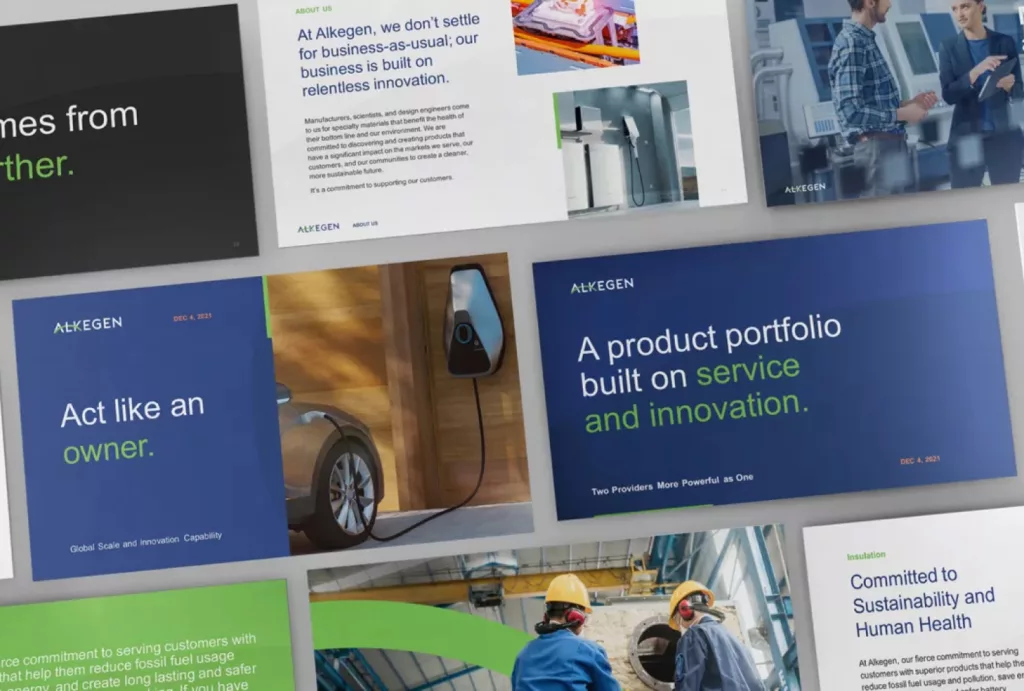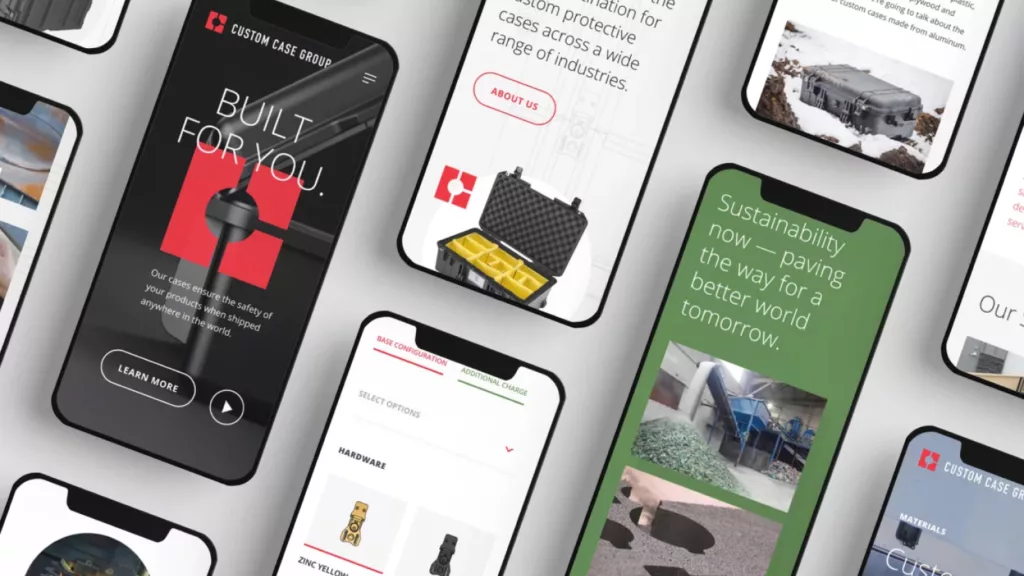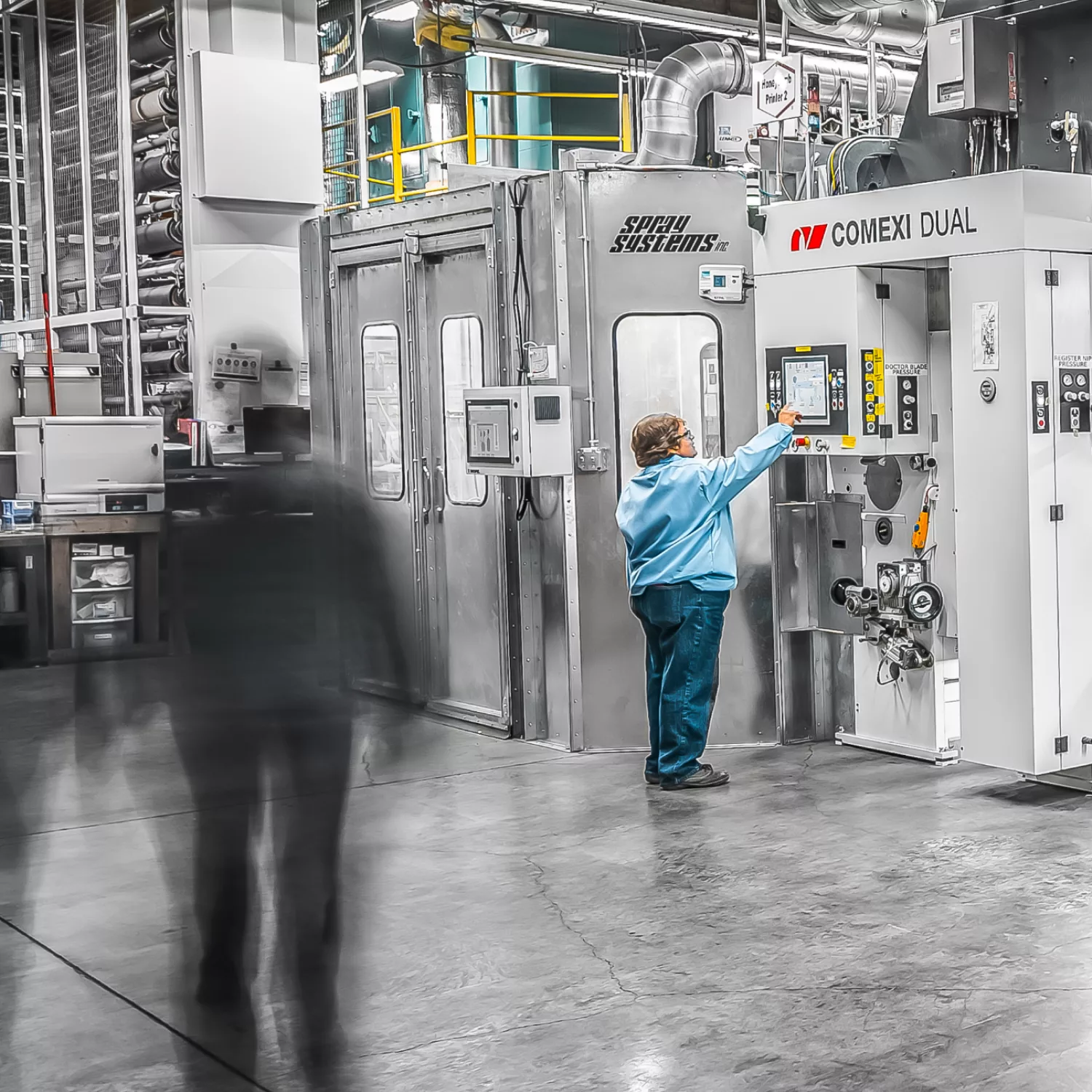Marketing for manufacturing is a unique niche that requires a tailored approach. People are people, whether they’re considering buying a soda for lunch or a complex piece of machinery that will drive their business’s future.
But you’d be silly to pretend that convincing someone to buy your soda over your competitors required the same marketing tactics as influencing a multi-billion dollar corporation to invest millions in your manufacturing solutions.
From longer sales cycles to complex products and a multi-faceted decision-making process, manufacturing marketing demands a unique strategic approach. Our marketing agency has been working with manufacturers for nearly 15 years, so let’s look at some of what we’ve learned about marketing in this space.
What do we mean by “marketing for manufacturing”?
Are we talking about marketing equipment to manufacturers, or are we talking about marketing manufactured goods?
Yes. Both.
When discussing marketing and advertising for manufacturing, most of what we’ll discuss applies to companies that manufacture equipment and manufacturers of industrial goods. In places where our advice might not apply to both circumstances, we’ll be sure to point it out.

What’s Unique About Marketing for Manufacturing?
1. Longer Sales Cycles
Industrial manufacturing often involves sales cycles that can feel like an eternity compared to consumer goods. A consumer might take a couple of weeks to make a purchasing decision. In manufacturing equipment and manufactured goods, the journey from initial inquiry to final purchase decision can span months or even years. This longer process often involves marketing strategies that engage and nurture leads over an extended period and are closely linked to sales teams.
2. More Complex Products & Industries
Manufacturers often deal with complex, highly technical products and operate within specialized industries. To effectively market these products, you have to first understand them. Then, you must translate that understanding into informed, accessible, and effective marketing communications.
3. More Complex Decision-Making Processes with Multiple Stakeholders
The decision to purchase manufacturing solutions or manufactured industrial goods typically involves multiple stakeholders with varying priorities and concerns. An industrial manufacturing-focused marketing campaign might have to create initial interest and target several decision-makers with targeted messaging at several touch points throughout the purchase process.
4. More Complex Competitive Landscape
The competitive landscape for manufacturers can be complex as well. Geography, contractual obligations, regulations, and ingrained buying habits can all play a part in establishing who buys what, and that’s just scratching the surface. Establishing who your competitors are and what message will most effectively convince your customers to buy from you and not them can be a tall order.

The Steps to Creating Successful Marketing Campaigns for Manufacturing
Now that we’ve established some of what makes marketing for manufacturing unique, let’s look at the outlines of what will make a successful, effective campaign in the space.
1. Understand Your Product
A successful marketing campaign starts with a deep understanding of your product. That understanding will let you communicate its features, benefits, and unique selling points clearly. The fact that we’re an agency specializing in marketing for manufacturers doesn’t mean that we intuitively understand every product our clients want to sell. It means we’ve become pretty good at executing a process that makes us experts in those products. For us, that usually starts with an in-depth research and strategy process where we sit down with engineers, sales teams, and other product experts and pick their brains. We first work to understand what their products do and then what makes them unique.
2. Understand Your Customer
Who makes buying decisions about your products, and what do they care about? Are they looking for performance? Quality? Aftermarket service and support? Price? How do they learn about new products? How do they research them? Are they visiting specific websites? Reading publications? Going to conferences and events? Once they’ve learned about your products and even decided it’s the product they want to buy, what does that process look like? Do they have to convince other people in their organization? Do those people have the same concerns? Different ones? When you answer these questions, you can start to build an accurate profile of the customers you’re trying to reach and how you can reach them. Whenever we can, we like to spend time with potential customers in the industries we’re targeting. When that’s not an option, sales teams interacting with those B2B customers daily can often be a pretty good proxy.
3. Understand Your Industry
Industry-wide factors will have an outsize effect on buying habits in manufacturing. For example, buyers of agricultural processing equipment will have different concerns and motivations than buyers of aerospace manufacturing equipment. Industry trends, expectations, and forecasts will also play a role. To develop effective marketing campaigns for your products, you’ll need to understand the industry you’re marketing to and how you can capitalize on its trends, preferences, and culture.
4. Understand Your Competitors
We’ve found that a realistic, grounded view of how your products compare to your direct competitors can be a tremendous advantage. Don’t assume that your product is better just because it’s yours or that customers will know how it’s better. In manufacturing, reputations can take decades to build, and institutional memories can last even longer. Take an honest, close look at your product’s competitive advantages and disadvantages. Then, tie your advantages to your messaging. Manufacturers and consumers of industrial manufacturing can be highly sophisticated, sometimes skeptical consumers. So, ensure you offer them an authentic message about how your product is better than the competition.
5. Set Goals, Track Performance & Continually Improve
The concept of continuous improvement shouldn’t be foreign to anyone in the manufacturing space, and it’s a concept that can be applied to marketing campaigns and the manufacturing floor.
High-performing manufacturers are always measuring performance and finding ways to improve over time. High-performing marketing campaigns for manufacturers should be the same.
Set clear, achievable goals from the outset of your campaign, measure your performance, and look for ways to make improvements along the way.
Continuously monitor your campaign’s performance. Use data analytics to evaluate key performance indicators (KPIs) such as engagement rates, conversion rates, and return on investment (ROI). Adjust your strategies, content, and tactics based on your findings, optimizing your campaign for better results over time.
Case Studies of Effective Marketing for Manufacturers
What does it look like when you apply these techniques to marketing campaigns? We’d be happy to share a few examples from our work.
1. CPM is a global manufacturing equipment and services provider specializing in agricultural processing, biofuel, green energy solutions, and sustainable packaging. They brought us in to help unify a sometimes disparate family of brands under a single brand, identity, and purpose.
2. When two global industrial manufacturers came together, they needed a new brand ASAP. Other marketing agencies said “No way,” but we said “No problem” and helped bring the Alkegen brand to life.
3. The Gill Corporation makes aerospace composites that have been standard equipment on most commercial airliners for the last 70 years, but their digital presence didn’t match the reputation of their products. We helped them change that.

Partner with an Expert Manufacturing Marketing Agency
If you’re a manufacturer looking for a manufacturing marketing agency partner, we’d be happy to help. We’ve worked with manufacturing clients in the industrial equipment, automotive, aerospace, cleantech, lighting, and construction industries for nearly 15 years. We understand the challenges of effective marketing in this space, and we’d be happy to help you.





